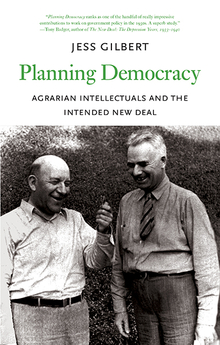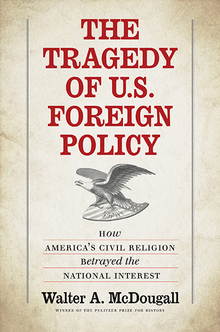In Irons
WARNING
You are viewing an older version of the Yalebooks website. Please visit out new website with more updated information and a better user experience: https://www.yalebooks.com
Britain`s Naval Supremacy and the American Revolutionary Economy
Drawing on documents newly culled from American, British, and French archives, the author shows how the French alliance, naval operations in the Atlantic and Caribbean, military operations in North America, and the policies of state and continental authorities contributed to the collapse and then revival of the revolutionary economy. Buel places the American economy in international context and discusses how both Spain and France created the conditions—though sometimes inadvertently—that bolstered the economic survival of the infant republic.
"Buel’s book is one of the most important studies of the Revolution that we have. With his customary imagination, resourcefulness, and precision Buel has brought together economic and military history in a manner that illuminates both. No one has pictured the problems of the Revolutionaries in quite this way before."—Gordon S. Wood, Alva O. Way Professor and Professor of History
"Buel`s subject—the economy of the newly established American Confederation during the Revolutionary War years and the central role of overseas commerce in that economy—has been neglected by both naval and economic historians. This important and original work helps fill the gap."—John B. Hattendorf, Ernest J. King Professor of Maritime History, U.S. Naval War College
"A major piece of scholarly work, this book is certain to have an impact upon the interpretation of this period."—Stanley L. Engerman, University of Rochester
"There is a surprise on almost every page of this remarkable book. No other historian in the field can match Richard Buel`s grasp of the economic side of the Revolution. He stitches his discoveries into the overall story of the war, giving us a new perspective on the drama of the nation`s founding."—Thomas Fleming, author of Liberty! The American Revolution
"It is hard to imagine anyone interested in the American Revolution who will not learn from and enjoy this wonderful book. Buel’s topic is so sweeping, his research so broad, and his interests so varied that his work can be used as a general economic history of the war. Indeed, I know of not other economic history of the period as sophisticated. Those interested in social history should find the book fascinating for its study of how people in a variety of occupations adapted to changing circumstances. Political historians will find considerable material on both national and Pennsylvania politics, particularly relating to fiscal and economic issues. [Buel] makes a major contribution to military history."—Jonathan R. Dull, American Neptune
“Buel’s work in an important and provocative study of the American economy during the Revolutionary War. . . . This large-scale reinterpretation is supported by equally large-scale scholarship.”—Choice
"[Buel’s] creativity and persistence have enabled him to assemble and consider a broad range of the extant data on the American economy—merchant and shipping records, contemporary writings and current scholarship-—which he views through the interpretive lens of British naval activity in American waters. Buel’s book is more a history of the impact of British naval operations on the American economy than of the operations themselves. . . . Among the things that make Buel’s book so valuable are the connections he establishes that others have overlooked or underplayed, principally those which relate to the nearly decisive pressure the British navy brought to bear, not just on the economy, but on the political and moral integrity of the American people. The end result is a superb introduction to the inner workings of the wartime economy. No picture of the American Revolution, however nuanced, can be complete unless it includes an understanding of the economic forces that shaped the lives of those involved, the debates over policy, and the end result. There is no better place to begin to acquire this understanding than Buel’s book, which is a ’must read’ for every serious scholar of the founding of the New World’s first republic."—Mary A. Y. Gallagher, H-Net Reviews
“An intriguing new framework for understanding the nature and course of the war. . . . This book is truly a pioneering study. Historical perspective on the American Revolutionary War has been transformed.”—Daniel A. Baugh, International History Review
"Buel’s objective is to provide an overview of the revolutionary economy as a whole. It is an extraordinarily worthwhile undertaking. . . . [An] outstanding achievement."—Richard Sicotte, Journal of Economic History
“Through meticulous research in a variety of rich, but widely scattered, manuscript collections, Buel has been able to produce an important and original work that pieces together the fragmented story and fills this historiographical gap. Throughout this complicated and detailed book, Buel’s assiduous research has brought out a vast amount of new information that brings fascinating new insights at virtually every turn. . . . Richard Buel has effectively linked economic and maritime issues in a manner that provides a stimulating fresh perspective for understanding the early formation of the American republic in the years between 1775 and 1783. Through it, the naval and maritime historian can better understand the economic links ashore, while historians of economic and agrarian issues can more fully appreciate the importance of issues at sea.”—John B. Hattendorf, Journal of Imperial and Commonwealth History
“In Irons represents a major contribution to the history of the American Revolutionary War. It successfully integrates the economic, social and military aspects of the war in a compelling account.”—Andrew O’Shaughnesy, Left History
"When I began teaching a course on the American Revolution nearly a decade ago, I looked in vain for an up-to-date analysis of the wartime economy. . . . Richard Buel’s new book changes all that; I now have a detailed and comprehensive tale to tell my students. . . . It is first and foremost a detailed history of the American economy during the Revolutionary war. . . . Buel’s sweeping narrative and broad-based analysis punctuated with detailed investigations of farming, industrial, and mercantile records should give teachers, students, and scholars for some time to come a much-needed framework for understanding—and debating--the economy of Revolutionary America."—John G. Kolp, Maryland Historical Magazine
“Although In Irons took over 15 years to complete, it was well worth the wait. Scholars of both the American Revolution and economic history will benefit from this impressive work.”—MHistorian
"This important book offers the best account we have of the American economy during the Revolutionary War."—Thomas M. Doerflinger, Pennsylvania Magazine of History and Biography
“No one writing about the Revolution should miss this book. For sheer detail and bibliography it has few peers. There is no cause to complain about anything that is present in the text, only a desire to have seen more.”—William M. Fowler, Reviews in American History
"This deeply researched and far-ranging book seeks to explore the role of commerce in the transition to independence. The result is far more ambitious and significant than the subtitle suggests. . . . A needed study of the American economy in the midst of war and a model for investigating the interplay of politics, military strategy, and commercial enterprise in the revolutionary era."—Bruce A. Ragsdale, Virginia Magazine of History and Biography
“No one that I am aware of has written so systematic and thorough an account of the consequences of British Naval supremacy for the American economy during and immediately after the Revolution. It is also difficult to think of anyone who has so mastered the sources of commercial and economic activity in the revolutionary period as Mr. Buel has.”—Robert Middlekauf, Washington Times
"[An] insightful and valuable study. . . . Buel’s notes are an invaluable resource for the study of the Revolutionary economy. The book is well produced and an important contribution to the study of naval strategy."—Nicholas Tracy, William and Mary Quarterly
Publication Date: September 3, 2013








